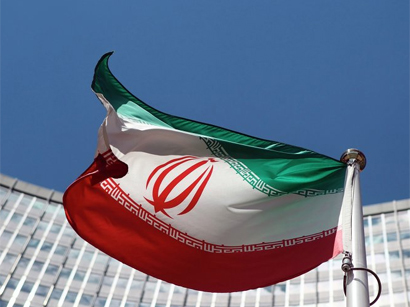The EU's initial freeze on the assets of Iran's central bank has been struck out in court, calling into question the bloc's use of confidential sources to support its international sanctions, The Financial Times reported.
The Court of Justice in Luxembourg ruled that the case against the Iranian central bank from January 2012 was based on confidential evidence from one unidentified member state, against which Tehran could not mount a defence.
"The reasons relied on are so vague and lacking in detail that the only possible response was in the form of a general denial," the court said. "Those reasons therefore do not comply with the requirements of the case-law."
Thursday's ruling against the EU's basis for sanctions comes at a sensitive time, just as the 28 member states are pushing to widen their embargo against Russia over its violations in Ukraine.
In the Iran case, however, the EU said there would be "no practical consequences" because there were further later provisions against Iran that would remain in force, ensuring the embargo on the central bank remained.
However, the case shows that the basis for EU sanctions is coming under increasing pressure. The European Council, the body which represents the 28 nation states of the EU, has just over two months to appeal.
Western sanctions against Tehran have had a devastating impact on the Iranian economy, ensuring that Iran's central bank is unable to access its overseas accounts and cannot bring back the country's revenues from crude exports - its lifeblood.
It has also provide the US and EU with important leverage in negotiations over Tehran's nuclear programme.
Iranian analysts believe the central bank has between $80bn-$100bn frozen in overseas accounts - mainly in China and India. They suspect the blocked assets in European banks are less than $10bn.
One Iranian senior banker said the court's decision many also help persuade the US that the continuation of sanctions against Iran was difficult.
An official in the Council said the court was increasingly challenging sanctions based on unnamed intelligence sources. Although he was unable to comment directly on the Iran case, he said the usual response from Brussels was to appeal and seek to reimpose the sanctions by using evidence that is publicly available.
Iran has been offered a small measure of sanctions relief for agreeing to sign up to talk of its nuclear programme, allowing Tehran to access $2.8bn of restricted funds.
But even if Iran were to win a big case on central bank sanctions that would not guarantee that the rest of the blocked funds would immediately enter back into circulation.
Iran is cut out of the Swift international currency clearing system so transfers would remain difficult. Western banks such as BNP Paribas and HSBC have also faced heavy fines for dealing with Tehran, and some bankers say they would be reticent about returning to business with the Iran.






